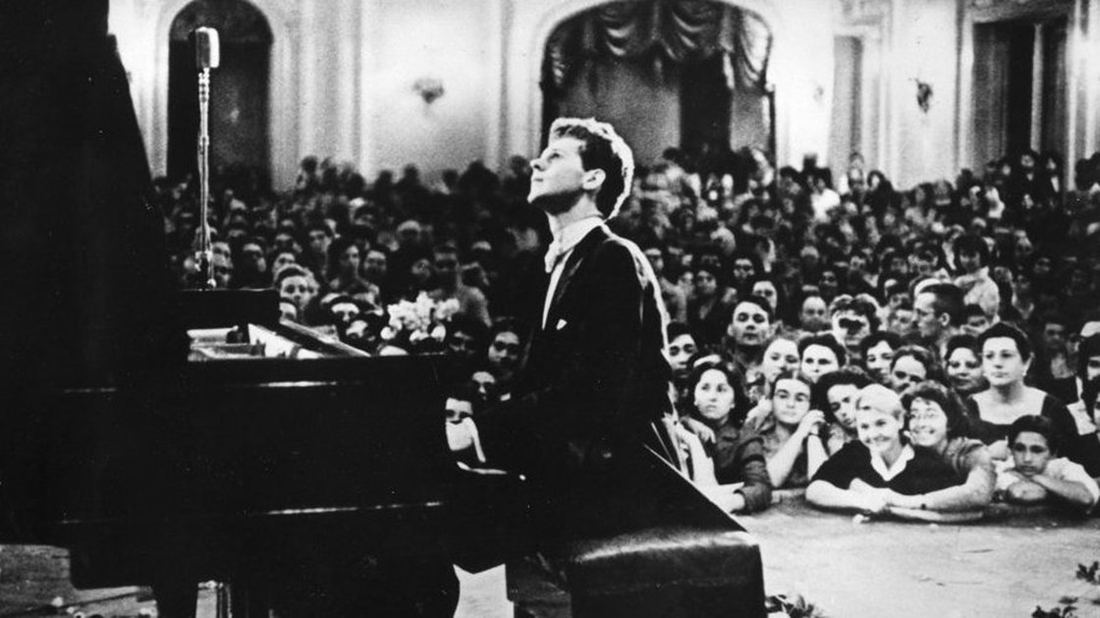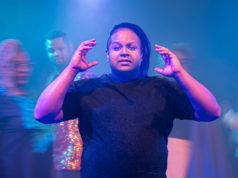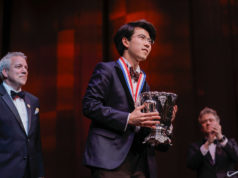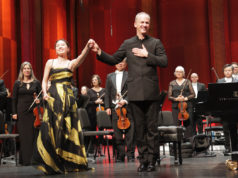Fort Worth took a double whammy last week with the passing of Van Cliburn, the iconic pianist for whom the Cliburn International Piano Competition is named, and major arts patroness Nancy Lee Bass, whose name, along with that of her late husband Perry, adorns the facade of Bass Performance Hall. Cliburn and Nancy Lee Bass were longtime friends, and each had a major impact on the local arts community — he with the reputation of his name that inspired Fort Worth’s performing arts scene, she with her hands-on generosity that ran into many millions of dollars for the arts.
Cliburn didn’t start life here –– he was born in Shreveport and grew up in Kilgore –– but when the idea of a new competition named after him in Fort Worth came up after his 1958 win of the inaugural Tchaikovsky Piano Competition in Moscow, he took an interest and eventually moved in. He bought the one-time Kay Kimbell mansion, a house designed by the architect Wyatt Hedrick, who also gave us the Will Rogers Memorial Center and other notable Fort Worth buildings. Set in spacious grounds surrounded by a high brick wall at the end of a slow traffic street in Westover, the home was perfect for a celebrity seeking privacy.
And Cliburn was a celebrity, a classical pianist who crossed the line into movie-star popularity after snatching the Tchaikovsky gold away from the Russian contestants who were expected to sweep the field. You had to have been alive then to understand the depth of the Cold War rivalry that developed between the United States and Soviet Union as Communism strove to exert its strength on the world stage. The year before, Russia had launched Sputnik and seemed to be at a distinct advantage. What a shot in the arm Cliburn’s win was to the West. It was like winning a major battle in the enemy’s territory. Cliburn, though, never acted like a soldier. He loved the Russian people, who loved him right back.
He was welcomed home to the States with a rowdy tickertape parade in New York City, the only classical musician to have that honor, and I was there to enjoy it, joining thousands of other people on their lunch hours to cheer the victor as he came up Broadway. The skinny kid from Texas was sitting on the backseat of an open convertible, throwing open his arms as if to drink in the cheers and applause. It was a much-needed victory then, and everyone seemed to want to be part of it.
Affable by nature and easy to get along with despite his international fame, Cliburn made a host of friends for his namesake competition. He was scrupulous in avoiding contact with contestants and jurors. He did not want to show favoritism or appear to influence decisions. The competition grew in excellence, as did the city’s other major performing arts groups. Many people lobbied for a suitable theater to match their increasing needs. Finally the Bass family and Cliburn himself donated a combined $27 million, including a square block of downtown real estate, to begin work on a new all-purpose performance hall, which opened in 1998. The final construction cost was an unbelievably low $67 million, all paid for by private donations. Not a penny of city, state, or federal funds was used.
While many helped bring this about, the Cliburn competition and its growing international prestige clearly needed a suitable backdrop, which strongly influenced the decision to break ground on Commerce Street. The competition also required a full-size, first-rate orchestra to accompany the finalists. Mercedes Bass took over as chairperson of the board of the Fort Worth Symphony Orchestra and made many charitable contributions, quickly transforming the group into the world-class institution it is today.
Cliburn left no immediate family but was fortunate to have longtime companion Thomas Smith to take care of him, not just in his final weeks but during their many years together. Smith is an enthusiastic gardener, I’m told, and in his spare time restored the estate’s notable rose garden, which had fallen into neglect.
Cliburn’s performances thrilled many people over the years, and while those memories will fade, his legacy will live on in his adopted hometown.












